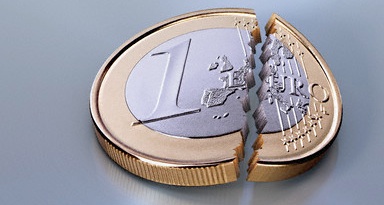
What seemed unthinkable a few years ago is a matter now of increasing speculation: is the EU broken? We recall that in 1951, by establishing the European Coal and Steel Community (ECSC), economic cooperation between six European countries (Belgium, France, Italy, Luxembourg and the Netherlands) was started. It therefore constituted the prologue of the Treaty of Rome in 1957 and the establishment of the European Economic Community (EEC). In 1993, after the Maastricht Treaty, the European Union (EU) was formed, which absorbed the European institutional arrangements in 2009 with the entry into force of the Treaty of Lisbon. On July 1, 2013 the EU went on to have 28 members, with a population of 500 million. They are formally candidate countries, Albania, Macedonia, Montenegro, Serbia and Turkey.
In view of the above data, there is no doubting the political success of the process of Europeanization towards closer union of ideas, institutions and interests, as proposed by the clairvoyants Jean Monnet and Konrad Adenauer. It is true that three countries have their eventual integration process crippled (Iceland, Norway and Switzerland), but the fact remains that such states maximize their individual advantageous positions by acting "for free", although they maintain collaborative relations with the EU. All in all, the Europeanization has made feasible what not so long ago seemed impossible, especially in a continent where so much blood has flowed in recent centuries. In this regard, we should also recall that only the two world wars - "civil wars" among Europeans caused the death of 70 million people between 1914 and 1945.
Before embarking on the great adventure of European political unity, nation states had deployed an exclusive statist nationalism. They sought to consolidate legitimacy and internal cohesion and pursued avoiding recurring situations of clashes with "external enemies" incarnated by other European nation-states. The horrors of armed conflict gave way to the ambition to build a united Europe, whose balance should be evaluated very positively.
A Conservative enabled the UK to enter the EEC
Lo and behold, the statist nationalism, in view of its gradual loss of prominence and national power, reacted by blaming their incapacity -and far to frequently so- on the European institutions. During 2015, the case of the United Kingdom stands out and the possibility of Brexit (semantic combination "Britain" and "exit"). As we know, the premier David Cameron promised to the British electorate to hold a referendum before the end of 2017on the question of possible European abandonment of the UK. In the meantime, and as a condition to campaign in favour of staying in the EU, Cameron has raised a series of demands with the European institutions, for example, the restriction of rights to European immigrants in the UK. The President of the European Council, Donald Tusk, has been explicit about it, "We must defend two red lines: the free movement and the principle of non-discrimination within the European Union".







